
On March 25th, the World Wide Fund for Nature (WWF) Beijing Office, partner of the European Union funded SWITCH-Asia Pride on Our Plates project, held a high-level food forum at the Beijing Phoenix Center during the 2023 Earth Hour event. On this occasion, the “CARE FOR FOOD——Initiative on Reduction of Food Loss and Waste” was successfully launched!
Jointly initiated by the WWF Beijing Office, Shenzhen One Planet Foundation (OPF), and eight non-governmental organisations, associations, enterprises (including two delivery software platforms with the most users in China), and investment institutions from the catering industry, the CARE FOR FOOD Initiative encourages all stakeholders in the industry to take action on reducing food loss and waste – from management and operations, technological innovation, green finance, to industry standards, and public education.
The SWITCH-Asia “Pride on Our Plates” WeChat mini programme was also launched to help restaurants and consumers monitor food waste and their eco-footprint, for example, conducting daily waste measurement, generating reports of food waste amount and environmental footprint analysis automatically.
Furthermore, an “Ugly Food” exhibition was set up on the event site, calling on consistent actions and cooperation in the food industry and among the public to collaboratively tackle food waste.


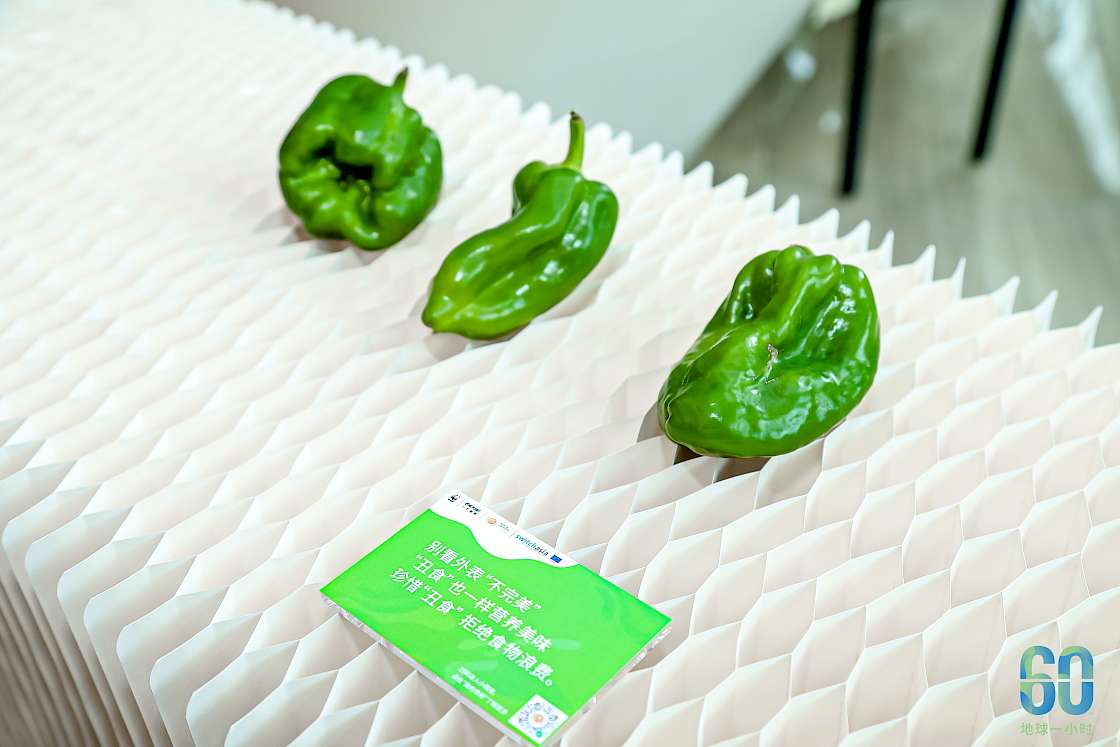
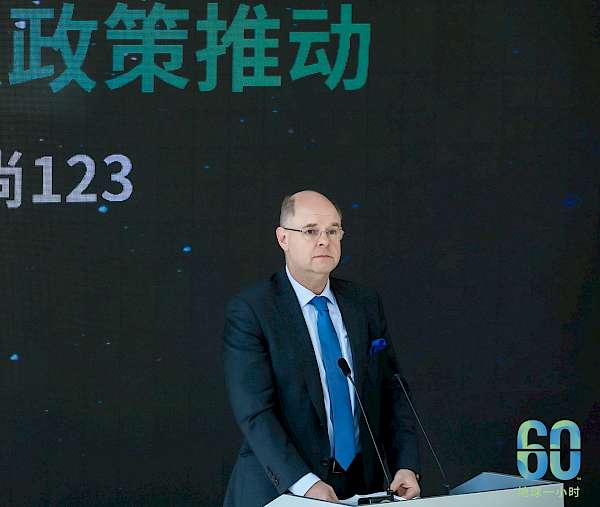 Mr. Daniel Hachez, Minister Counsellor/Head of Cooperation, Delegation of the European Union to Thailand, explained: Food waste is a universal and multifaceted challenge, creating additional climate change and environmental burdens besides economic losses. The EU has supported food value chain transformation and contributed to relevant measures for the attainment of the SDGs, including SDG12 on Responsible Consumption and Production. The EU funded SWITCH-Asia Pride on Our Plates project is contributing to both creating an enabling policy environment and building capacities of those who can transform the food and hospitality sector. The project’s pilot restaurants will be provided with tailor-made guides and tools to support their food waste reduction actions. In addition, Pride On Our Plates works with industry associations and key stakeholders to reinforce outreach and impact on policy-making processes.
Mr. Daniel Hachez, Minister Counsellor/Head of Cooperation, Delegation of the European Union to Thailand, explained: Food waste is a universal and multifaceted challenge, creating additional climate change and environmental burdens besides economic losses. The EU has supported food value chain transformation and contributed to relevant measures for the attainment of the SDGs, including SDG12 on Responsible Consumption and Production. The EU funded SWITCH-Asia Pride on Our Plates project is contributing to both creating an enabling policy environment and building capacities of those who can transform the food and hospitality sector. The project’s pilot restaurants will be provided with tailor-made guides and tools to support their food waste reduction actions. In addition, Pride On Our Plates works with industry associations and key stakeholders to reinforce outreach and impact on policy-making processes.
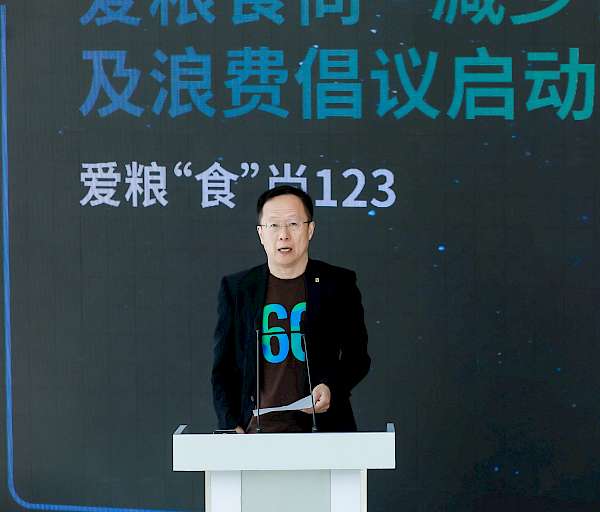 Mr. Zhou Fei, Chief Program Officer of WWF Beijing Office, reported China is conducting comprehensive policy-making and implementation work to ensure food security and establish green agriculture. As one of the pioneer projects on food waste reduction, the Pride on Our Plates project launched training and tools for MSMEs in six pilot cities and facilitated experience exchanges during last year’s “Earth Hour.” This year, the project has strengthened its cooperation with many more partners and the interventions launched play an important role in the food system’s transition towards a harmonious, carbon neutral, and Nature-Positive future.
Mr. Zhou Fei, Chief Program Officer of WWF Beijing Office, reported China is conducting comprehensive policy-making and implementation work to ensure food security and establish green agriculture. As one of the pioneer projects on food waste reduction, the Pride on Our Plates project launched training and tools for MSMEs in six pilot cities and facilitated experience exchanges during last year’s “Earth Hour.” This year, the project has strengthened its cooperation with many more partners and the interventions launched play an important role in the food system’s transition towards a harmonious, carbon neutral, and Nature-Positive future.

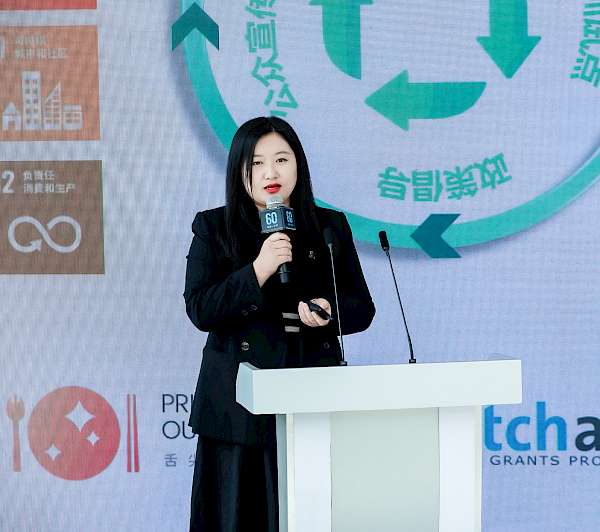 Ms. Yu Xin, Priority Project Coordinator of Sustainable Food Consumption and Supply Chain, WWF Beijing Office, shared major outcomes of the Pride on Our Plates project. Two important reports have been released earlier: the Food Waste Reduction Casebook (English) and the Food Waste Reduction Practical Guide (Chinese). Based on relevant tools and frameworks outlined in these reports, workshops for MSEMs in five cities have been conducted, covering nearly 300 employees in catering enterprises. Through the training, attendees have significantly improved their awareness and knowledge on reducing food waste. Furthermore, the project spearheaded interactive activities with enterprises, policymakers, and the public.
Ms. Yu Xin, Priority Project Coordinator of Sustainable Food Consumption and Supply Chain, WWF Beijing Office, shared major outcomes of the Pride on Our Plates project. Two important reports have been released earlier: the Food Waste Reduction Casebook (English) and the Food Waste Reduction Practical Guide (Chinese). Based on relevant tools and frameworks outlined in these reports, workshops for MSEMs in five cities have been conducted, covering nearly 300 employees in catering enterprises. Through the training, attendees have significantly improved their awareness and knowledge on reducing food waste. Furthermore, the project spearheaded interactive activities with enterprises, policymakers, and the public.
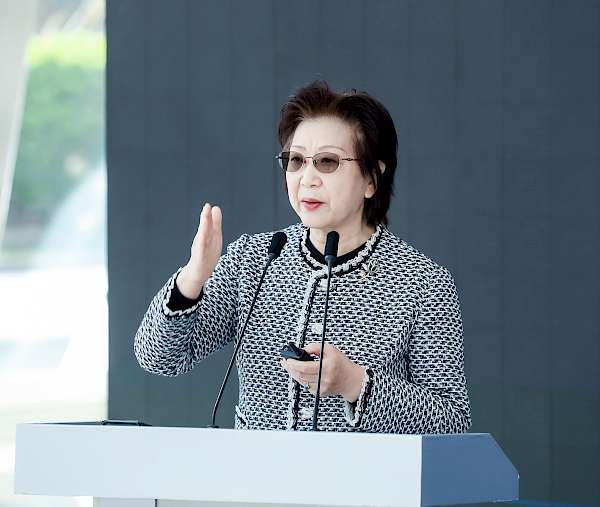 Ms. Ping Anwen, Senior Vice President of the China Hotel Association, introduced the “Evaluation Specification for Green Catering,” co-developed by the China Hospitality Association, the “Pride on Our Plates” project team, and other organisations. She analyzed the four core evaluation dimensions in the specification and introduced some of the measures for a green and sustainable transformation of the catering industry.
Ms. Ping Anwen, Senior Vice President of the China Hotel Association, introduced the “Evaluation Specification for Green Catering,” co-developed by the China Hospitality Association, the “Pride on Our Plates” project team, and other organisations. She analyzed the four core evaluation dimensions in the specification and introduced some of the measures for a green and sustainable transformation of the catering industry.

During the round-table discussion, guests from scientific research institutions, international organisations, industry associations, and investment institutions shared their experiences in reducing food loss and waste.
Dr. Liu Xiaojie, Associate Researcher, Institute of Geographic Sciences and Natural Resources Research, Chinese Academy of Sciences, emphasized that although we already have an “Anti-Food Waste Law” and various standards, behaviour change in food waste reduction is not something that can be achieved in the short term. Food reduction education should start with children. Furthermore, collaboration and synergies among all parties must be forged.
Mr. Dong Le, FAO Partnership and Innovation Program Officer, introduced FAO's current engagement in protecting black land to reduce greenhouse gas emissions through sustainable soil management. Globally, FAO will dive into FLW and many other food-related issues during the first review meeting of this year's Food System Summit.
Ms. Gao Xiaoyi, Minister of the International Department of China Environmental Protection Federation, shared the youth education experience. It might be an enormous challenge for youth to change their behaviour if the education takes a “you talk, I listen” approach. The environment we set for youth’s learning should be carefully designed as an essential part of education. For example, teaching how to take meals, dine, and classify kitchen waste. This can result in natural behaviour change.
Mr. Ge Yong, Founder of Green Leaf Investment, pointed out the importance of noticing the “invisible loss and waste” in the upstream and midstream of the food industry. We need more investments in agricultural entrepreneurs and technological innovation to help reduce food loss and waste in the farmland management system more efficiently.
In addition to the food forum in Beijing, OPF and WWF have also carried out various activities about food waste reduction in Shenzhen and Shanghai during the 2023 “Earth Hour” local event to call for more actions. This year, “Earth Hour” was broadcasted live on ten different platforms, including all major social media in China, and attracted more than 2 million viewers.
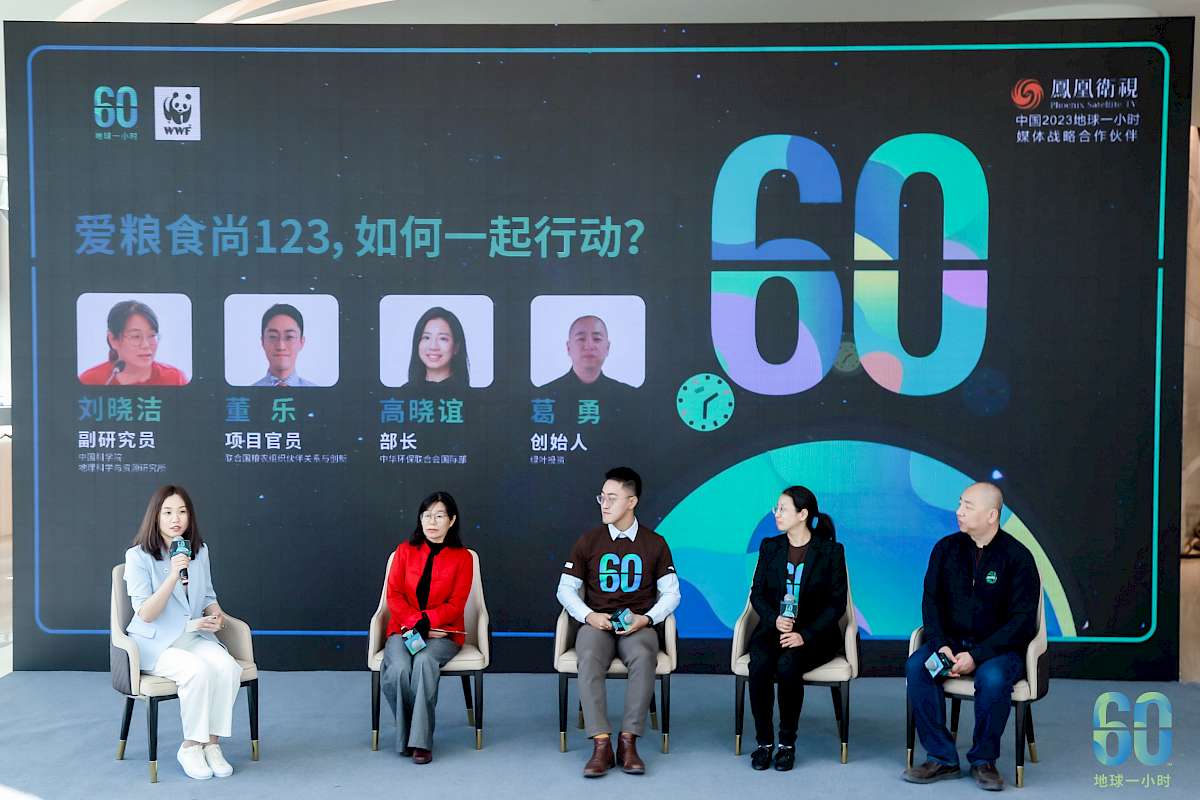
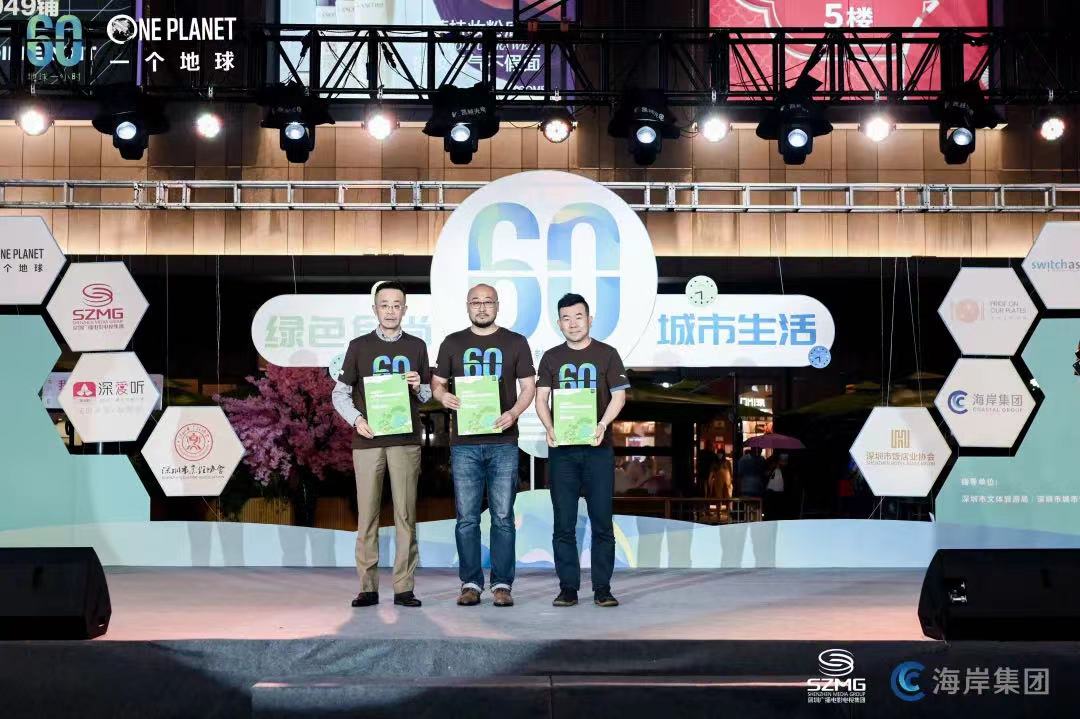
The EU SWITCH-Asia Pride on Our Plates project is led by Shenzhen One Planet Foundation (OPF), World Wide Fund for Nature (WWF) Beijing Office, Rare Europe, and Rare China Center for Behavior as the project’s strategic partners. Partners jointly called on China's micro, small and medium-sized hospitality and food service enterprises to take part in the challenge of food waste reduction.
Photo credits © SWITCH-Asia Pride On Our Plates


